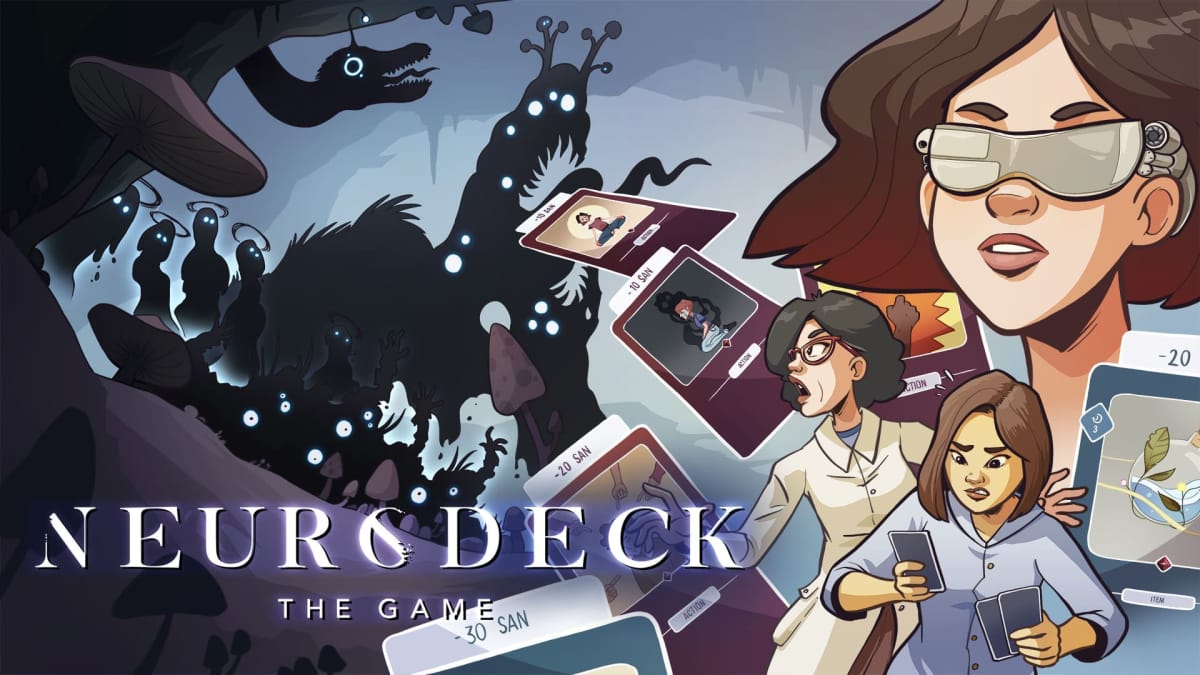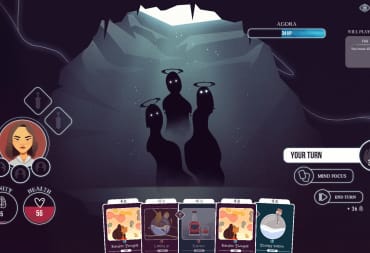Neurodeck is a truly fascinating game. You play against the enemy only to realize that enemy is you - your fears. Part of that combat is dealing with what’s in front of you and a much more important part is dealing with what’s behind you. Stuck in the inexorable void of your own mind, you just have to keep fighting until you resurface again. Neurodeck is good enough to resurface but when you look down, the pool from which you came is frighteningly shallow.
Neurodeck’s combat is set up like a fairly traditional Deckbuilder game. It stands in line with The Amazing American Circus, Slay The Spire, or, perhaps more pertinently, Ring of Pain. You have two central stats to keep an eye on, Stamina and Sanity. Stamina is used to play cards and Sanity is used as a health bar. As well as Stamina, cards cost an action to use, of which you usually have three each turn. This is a good way of limiting infinitely repeating combos like those you might find in Slay The Spire. An average turn will have you play up to three cards, while a great one might only play five.
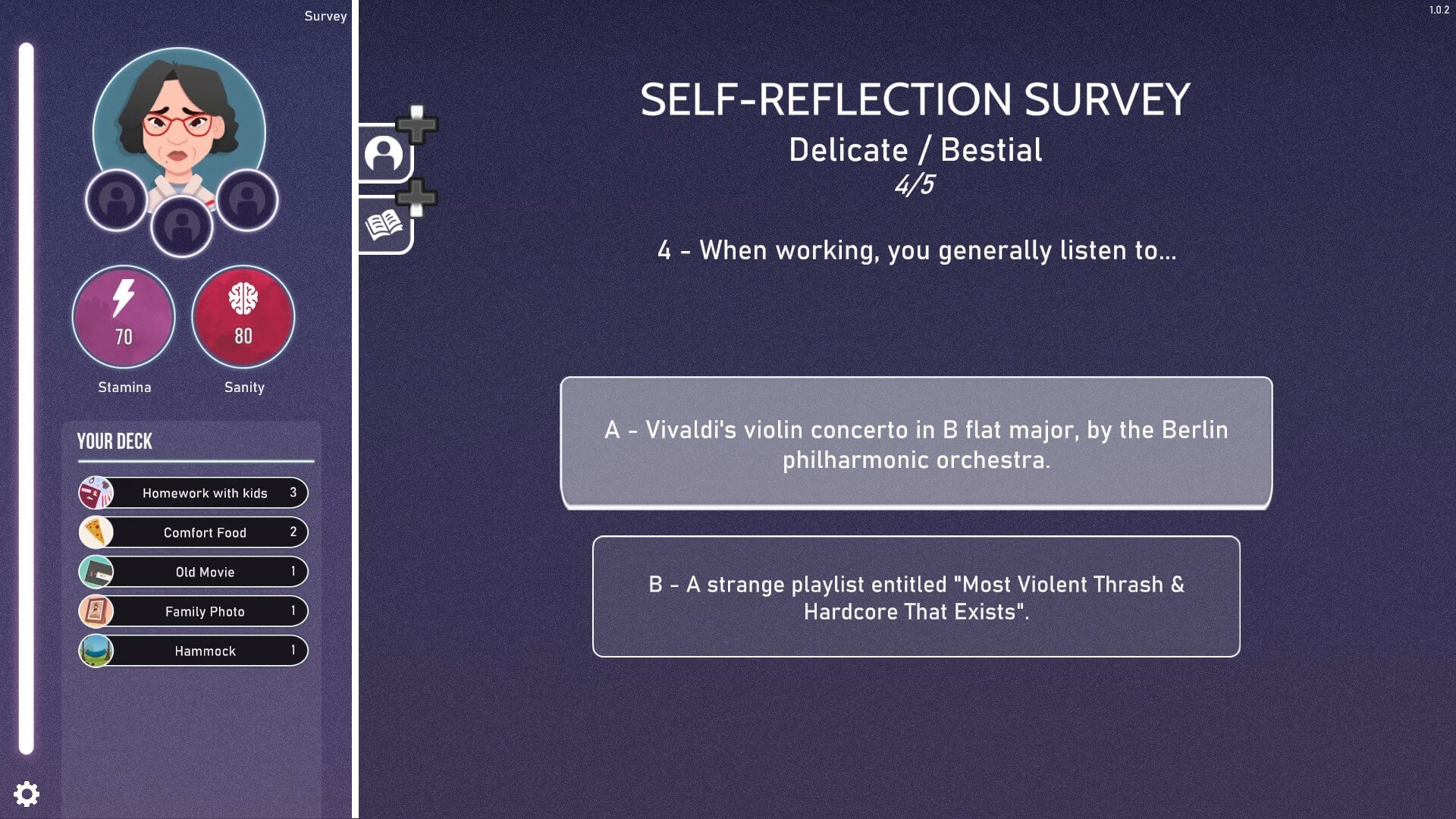
You can play as one of two central characters, all with a handful of driving emotions. The character and emotions change your starting deck and central mechanics. There’s this interesting dichotomy between combat and emotions in Neurodeck. Your fears are chosen by you before combat, shaping what you fight, and emotions shape how you fight. Do you focus on self-preservation or all-out attack? Some fears work well with your emotions while others slow you down greatly. Neurodeck's interpretation of fears is equally fascinating with Tokophobia (the fear of pregnancy) having a character morph and change from their festering, dark stomach where Masculinity is something that builds and kills you with one fell swoop.
The commentary on this fear and how people choose to deal with them is fascinating. You can eat some comfort food for a small boost to your Stamina and Sanity or use random thoughts to deal damage to your phobia. Introspection is how you kill all fears. You keep yourself healthy and think when you can. On the base level, Neurodeck is rather easy because of a few key points. Stamina and Sanity completely restore after battles, cards are tough, and bosses don’t have a huge deal of HP. Where other Deckbuilders may take hours to win, it’s entirely possible to beat Neurodeck on your first try.
This win can feel a little hollow with the number of upgrades and great cards general progression throws at you. When you aren’t fighting your fears, you can upgrade your stats in the gym, get new cards through sleep or unlock new traits through an introspective survey. This allows you to psychoanalyze yourself and get some helpful perks for the rest of the run. Choices tend to be made in binary ways. You can choose one of two perks, one of two cards, one of two enemies. You are often given rather strict parameters to operate within and that can help subsequent runs feel a lot less exciting than your first. Your understanding of the game unfurls but it doesn’t stay mysterious for very long. The different characters reveal themselves quite quickly, leaving a decent but relatively unchanging gameplay loop at its core
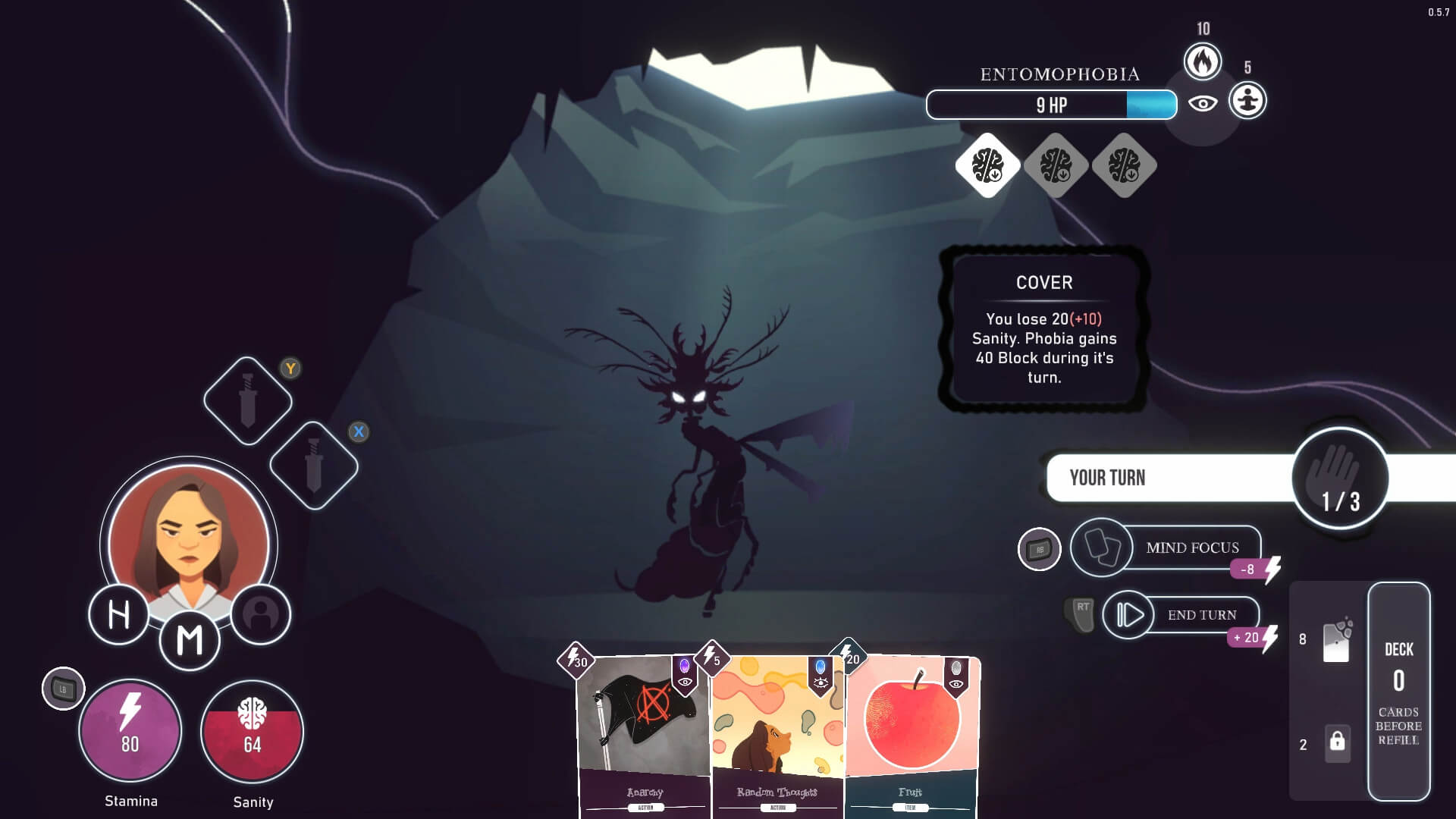
This loop is made a bit more appealing with its aesthetic. There’s an oppressive, yet rather light-hearted appeal to the phobias and backgrounds that are displaced by the cutesy art style of your actions. It deals with this jarring switch between the psyche and the actions you take to help it. The music also fits this style well by fusing minor and major themes within one central piano piece. There’s a mysteriousness to it that is contrasted against the hope at its core.
In a sense, one could say the same for Neurodeck itself. It deals with dark tones but never makes them oppressive enough to be scary. Despite dealing with issues that everyone struggles with, it gives an out through its actions. It is thoroughly an optimistic challenge in a pessimistic world. This challenge is a little too easy to overcome and its mysteries get solved a little too quickly but the journey is still an interesting one.
Neurodeck is a game that could just do with a little more time and a little more content. The first hour is far more exciting than the tenth and it lacks a few quality of life features that I imagine will be hammered out in the future. The Steam achievements simply didn't work for me and it was littered with some small text and visual issues like unlocking items I'd already unlocked or occasionally showing the wrong name. These aren't huge issues but they're indicative of the experience. Neurodeck is an interesting game that has the potential to be a great one.
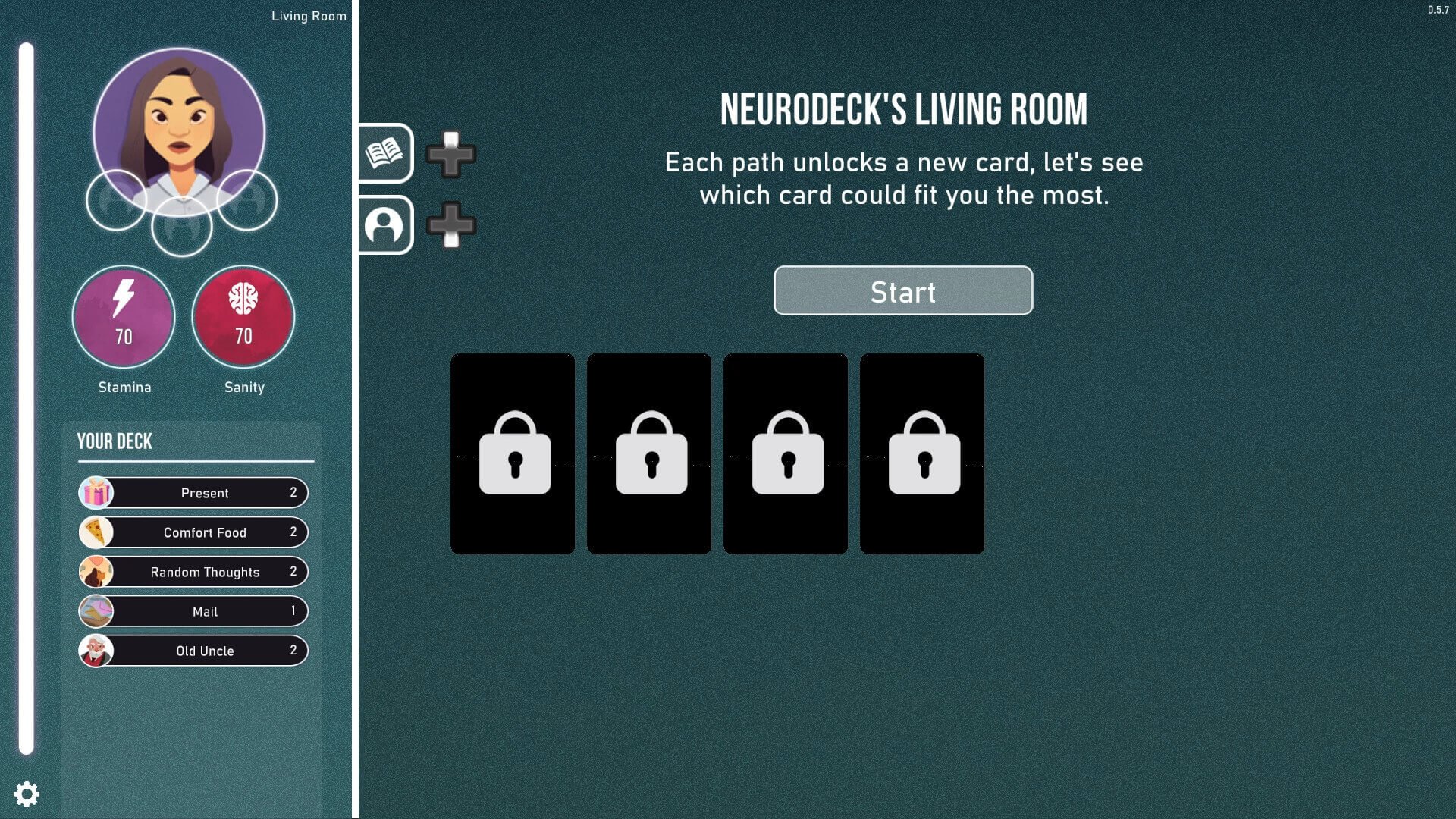
Neurodeck - Final Thoughts
Fears are a strange thing. Part of what makes them so scary is our inability to understand them. Why is it that spiders, germs, or loneliness can be so debilitatingly scary? Maybe it’s because we don’t understand how to deal with it. Our innate lack of information plays against us and terrifies us. Neurodeck plays on this idea well but doesn’t leave enough in the shadows to really intrigue as it should. It pushes those fears in the open and doesn’t give enough depth to terrify.
TechRaptor reviewed Neurodeck on PC with a copy provided by the publisher. The game is also available on Nintendo Switch.
Review Summary
Pros
- Great Idea
- Interesting Themes
- Decent Gameplay Loop
Cons
- A Little Shallow
- Doesn't Take Full Advantage of its Ideas
Have a tip, or want to point out something we missed? Leave a Comment or e-mail us at tips@techraptor.net
